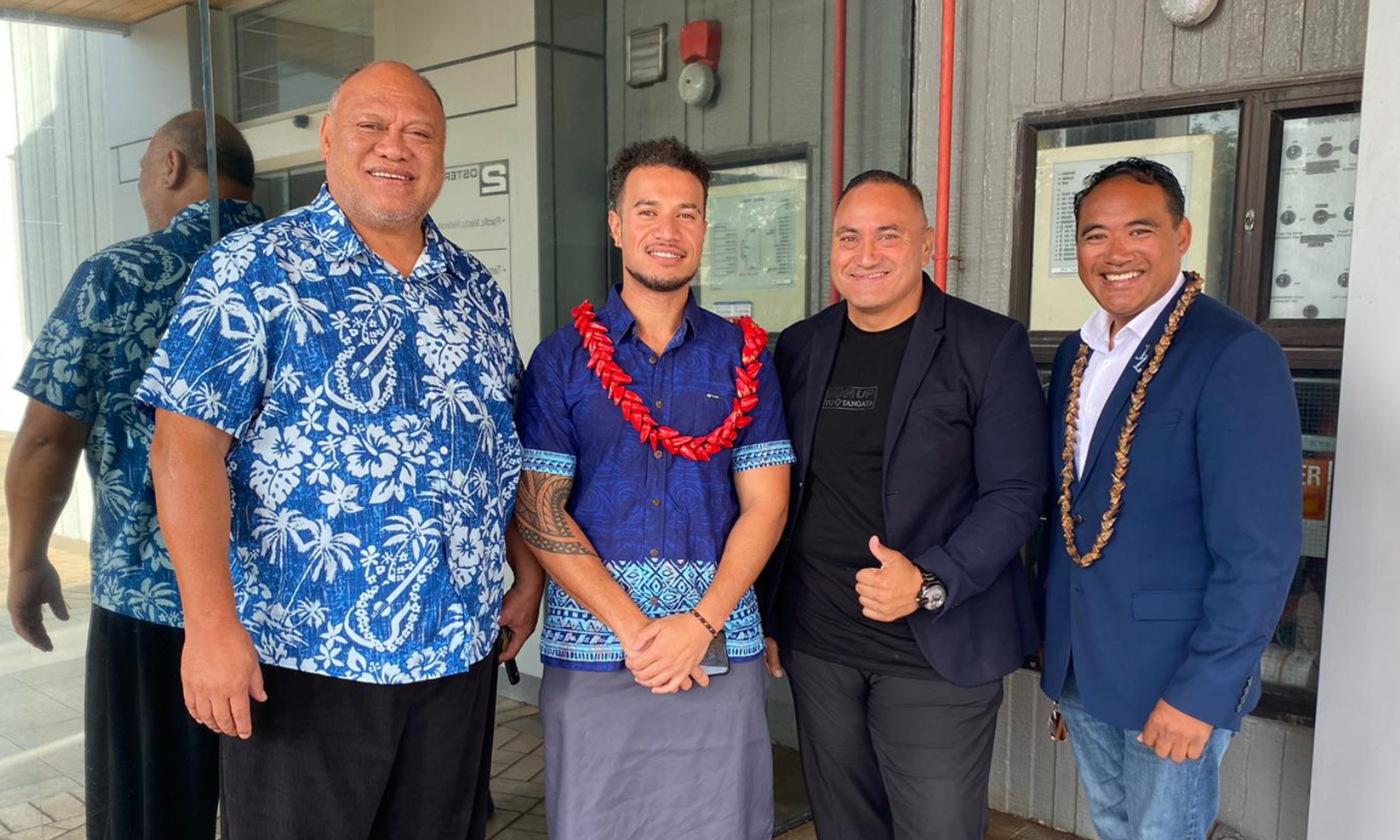

Children play in a village in the Solomon Islands.
Photo/File
One million children in the Pacific without a birth certificate - SPC
The experts warn that this hinders their access to education, healthcare, and legal rights.


Former Cook Islands PM urges continued Cook Islands–New Zealand partnership

The VC that never was: Bringing the heroic truth of Haane Manahi to the big screen


Papatoetoe election rerun highlights low voter turnout

Former Cook Islands PM urges continued Cook Islands–New Zealand partnership

The VC that never was: Bringing the heroic truth of Haane Manahi to the big screen

An estimated one million children in the Pacific region lack an official identity, which is hampering their access to education, healthcare, and legal rights.
The experts warn that growing up without a birth certificate has far-reaching implications for families and governments, as officials race to address the issue.
Jeff Montgomery, Programme Lead for Civil Registration and Vital Statistics at the Pacific Community (SPC), says the absence of birth registration affects everything from basic rights to national planning.
In an interview with Sanele Chadwick on Pacific Mornings, Montgomery says: “If you don’t have a birth certificate, you’re going to be unable to get a passport. You may be unable to open a cell phone account in your country. You may be unable to register for school.
“But also, it brings information to the government and non-government organisations ... how many schools need to be built, how many hospitals ... what kind of businesses might open, all this relies on having a good understanding of the population.”
Montgomery says that there is a need for improvements in population records across the region.
“We're estimating that over a million children have not had their births registered and will not have their births registered until at least they turn five years old.
“For Kiribati, for example, they’re currently at 90 per cent of births registered. In Vanuatu, it’s just 17 per cent, and Papua New Guinea is less than that.
“In Sāmoa, only 64 per cent of babies are registered within five years of birth.”
Watch Jeff Montgomery's interview below.
Montgomery, a former Registrar-General of New Zealand, says birth and death registration is important for a person’s future.
“So that they can access schools, they can access universities overseas, they can get a passport, that they can join the national rugby team. All of these things require a birth certificate.”
He says that death registration is equally important because it ensures that loved ones are counted, and the data can help prevent future deaths.
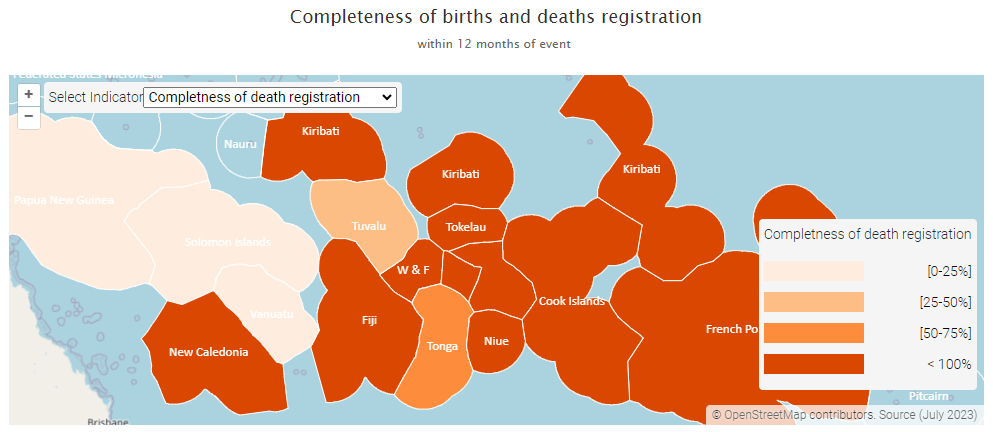
Less than 20 per cent of deaths are recorded in Papua New Guinea, Solomon Islands and Vanuatu. Image/SPC
A lack of registration records affects not just individuals but entire nations, he adds.
“Papua New Guinea is a good example... the government doesn’t really know how many people are in the country. They don’t know how many babies are born every week. They don’t know how many people die every week, and then they can’t plan hospitals, schools, roads, all of those important things.”
Barriers to registration
While registering a birth seems simple, Montgomery says some barriers can make it difficult for families.
Other obstacles include power outages at registration offices, understaffing, and, in some cases, fees. Montgomery says death registration faces similar challenges, although the consequences can be more severe.
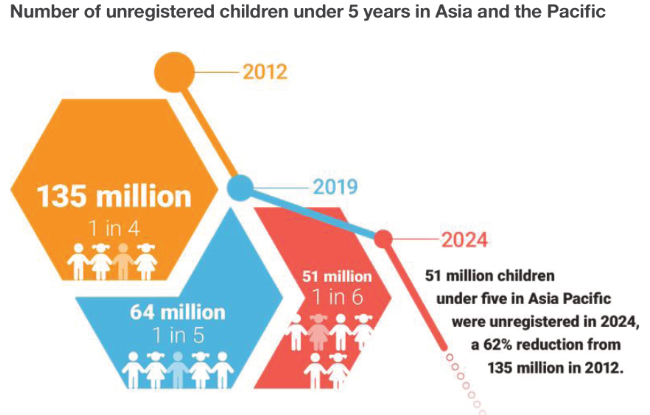
Image/CVRS May 2025 Report
“Often, it’s just information. Parents are busy. A new baby’s just arrived. In some countries, it does require you to go into the office with a newborn child on your hip. You may not want to travel a couple of hours into town and queue up for three or four hours in the hot sun.
“We always advocate that birth registration should be free, and in most countries in the Pacific, that is the case. But sometimes you have to pay to get the birth certificate, and some families might struggle to do that,” he says.
“In many countries, there’s no real advantage to the family of registering the death unless there’s land involved... But that death information, particularly the cause of death information, is vital for local planning of health facilities and responding to crises such as pandemics.”
Montgomery also highlights the financial risks of not registering a death. “If the money is continued to be paid, then the family may have a debt that they owe back to Government... paying pensions to people who have passed away is not the best use of the limited funds that that country has.”
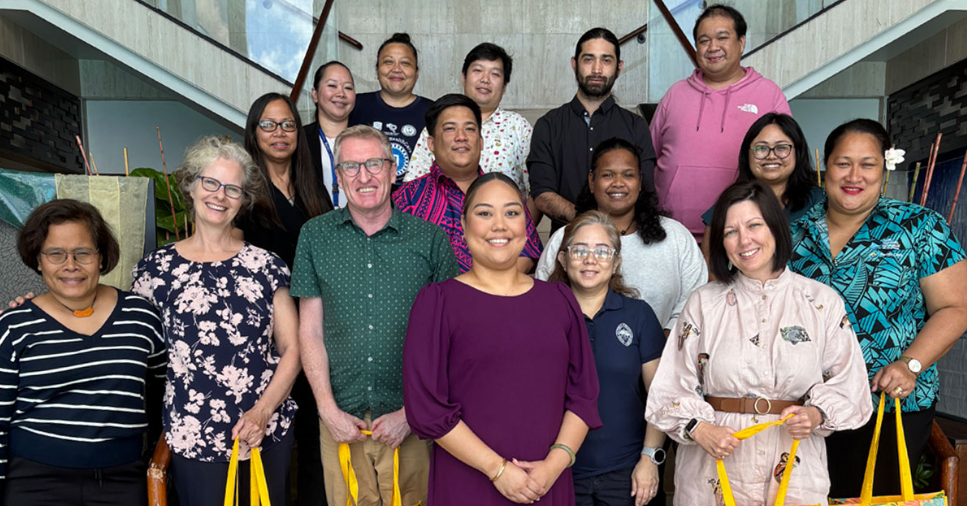
SPC's Jeff Montgomery (green shirt) with North Pacific medical practitioners in Guam. Photo/SPC
Everyone counts
Governments across Asia and the Pacific have committed to ensuring all births and deaths are registered by 2030. The SPC and the Bloomberg Data for Health Initiative are working towards transitioning countries to digital systems to reduce reliance on paper records.
During last month’s Ministerial Conference on Civil Registration and Vital Statistics (CRVS) in Asia and the Pacific, Jeffrey Trief, the Registrar-General of Vanuatu, says a resilient system will ensure that legal identity and vital information are maintained, even during disasters.
“Ensuring every Ni-Vanuatu is counted and can claim their rights and entitlements … protecting the dignity and identity of every citizen, no matter where they live or what challenges they face,” Trief says.
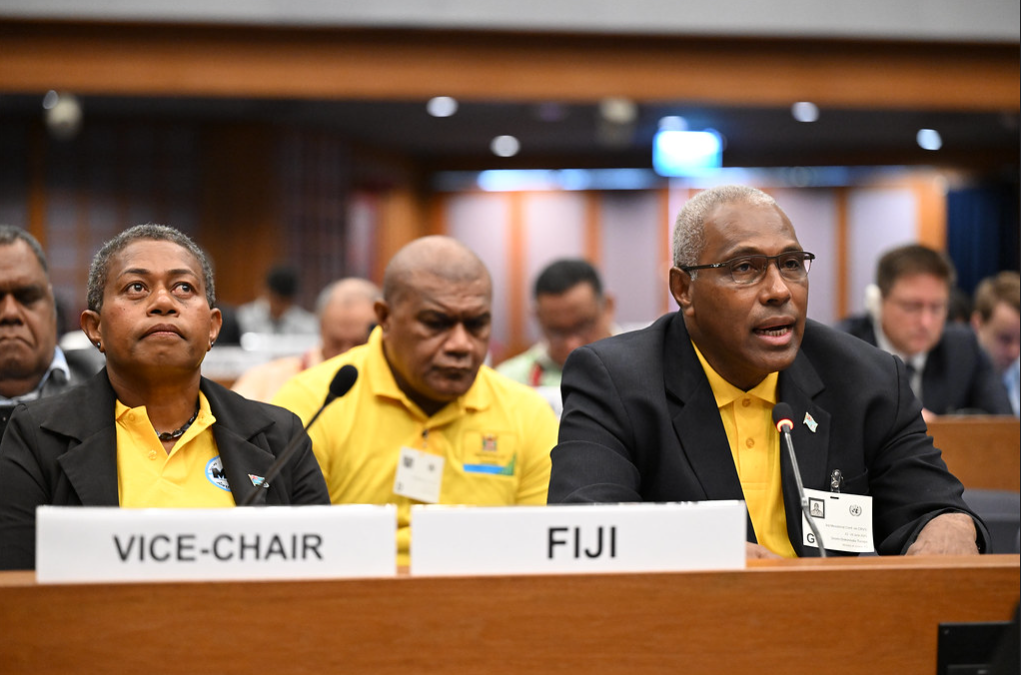
Fiji's Justice Minister, Siromi Turaga (right) at the Ministerial Conference on Civil Registration and Vital Statistics in Asia and the Pacific in June, 2025. Photo/UNESCAP
In a statement, Siromi Turaga, Fiji’s Justice Minister and acting Attorney-General, says good civil records extend beyond administrative function.
“It is a foundational pillar of sustainable development,” Turaga says. “It secures legal identity, upholds individual rights, enables access to essential services and provides critical data to monitor progress across numerous Sustainable Development Goals.”
Tonga, Tuvalu, and Fiji are collaborating to accurately record causes of death, creating a regional picture of disease trends and supporting long-term health planning.
Montgomery says data-sharing throughout the region is helpful.
“Increasingly, Pacific people are being born in one country and are dying in another. Economic and climate factors are likely to lead to additional population relocation in coming years.”